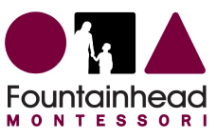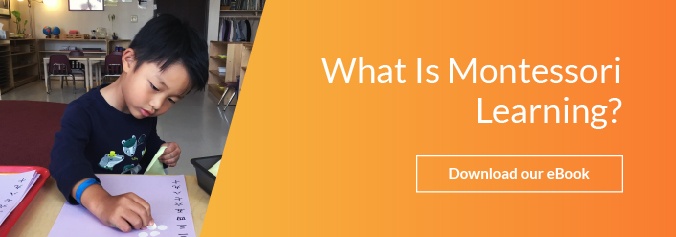As parents begin the search for the perfect preschool, we at Fountainhead Montessori School often hear the question: "How exactly is Montessori different from traditional preschools?" It's an important question because these approaches differ fundamentally in their view of the child, their teaching methods, and their learning environments.
Having dedicated ourselves to authentic Montessori education, we'd like to share the key differences that make the Montessori approach so transformative for young children.
The View of the Child
Perhaps the most fundamental difference lies in how each approach views the child and their capabilities.
Traditional Preschool View:
In many traditional settings, children are seen primarily as recipients of knowledge. The underlying assumption is often that children:
- Need direct instruction to learn
- Benefit from adult-determined activities
- Should follow a standardized curriculum
- Need external motivation and rewards
- Learn best in age-segregated groups
Montessori View:
At Fountainhead, we see children very differently. We recognize that children:
- Have an innate drive to learn and explore
- Can direct their own learning when given appropriate choices
- Develop at their own individual pace
- Are internally motivated when work is meaningful
- Benefit from mixed-age learning communities
This difference isn't just philosophical—it shapes every aspect of the educational experience.
The Learning Environment
Walk into a Montessori classroom and a traditional preschool, and the differences are immediately apparent.
Traditional Preschool Environment:
- Designed for group instruction and teacher convenience
- Often bright and colorful with cartoon characters and themed decorations
- Materials stored out of reach, to be distributed by the teacher
- Identical activities for all children
- Separate areas for "play" versus "learning"
- Often noisy with frequent group activities
Montessori Environment:
- Designed for independence and exploration
- Calm, orderly aesthetic with natural materials and muted colors
- Materials arranged on accessible shelves in a logical sequence
- Wide variety of activities to meet different developmental needs
- Integration of "work" and "play" as one continuous experience
- Generally peaceful, with a productive hum of activity
At Fountainhead, we've carefully crafted our environments to promote concentration, independence, and joy in learning. Visitors often comment on the unusual level of peaceful focus they observe in our classrooms.
Curriculum and Learning Approach
The content and delivery of curriculum differ significantly between approaches.
Traditional Preschool Approach:
- Adult-planned themes and units (like "dinosaur week")
- Whole group moving through the same activities together
- Emphasis on pre-academic skills through direct instruction
- Compartmentalized subjects (math time, language time, etc.)
- Often workbook or worksheet-based
- Craft projects that all look similar (following a model)
- Play as a break from learning
Montessori Approach:
- Integrated curriculum following the child's interests
- Individual pacing based on development and readiness
- Hands-on learning with specialized materials
- Concepts presented from concrete to abstract
- Subjects naturally connected rather than separated
- Process-focused art and expression
- Learning through purposeful activity and exploration
In our Fountainhead classrooms, you won't find worksheets or cookie-cutter crafts. Instead, you'll see children using beautiful materials that embody abstract concepts in concrete form, allowing for deep understanding through discovery.
Social Development
Both approaches value social development, but foster it differently.
Traditional Preschool Social Development:
- Same-age peer groups
- Adult-led group activities
- Turn-taking and sharing emphasized through rules
- Conflict resolution managed by adults
- Social skills taught through direct instruction
Montessori Social Development:
- Mixed-age communities spanning three years
- Natural mentoring between older and younger children
- Grace and courtesy presented as practical skills
- Peace education integrated throughout curriculum
- Conflict resolution skills taught directly, practiced independently
- Community responsibility developed through daily maintenance
The three-year age span in our Fountainhead classrooms creates rich opportunities for leadership, empathy, and collaboration that single-age groupings simply can't provide.
Experience the Difference Yourself
At Fountainhead Montessori School, we welcome visitors to observe our classrooms in action. Seeing children as young as three working independently, caring for their environment, helping younger classmates, and engaging deeply with challenging materials often helps parents understand the Montessori difference better than any explanation could.
We hope this comparison helps clarify the fundamental differences between Montessori and traditional preschool approaches. If you'd like to learn more or schedule a visit to see our Fountainhead classrooms in action, please reach out. We'd love to show you how the Montessori approach nurtures not just academic skills, but the development of the whole child—intellectually, socially, emotionally, and physically.












Let us know what you think about this post
Put your Comment Below: